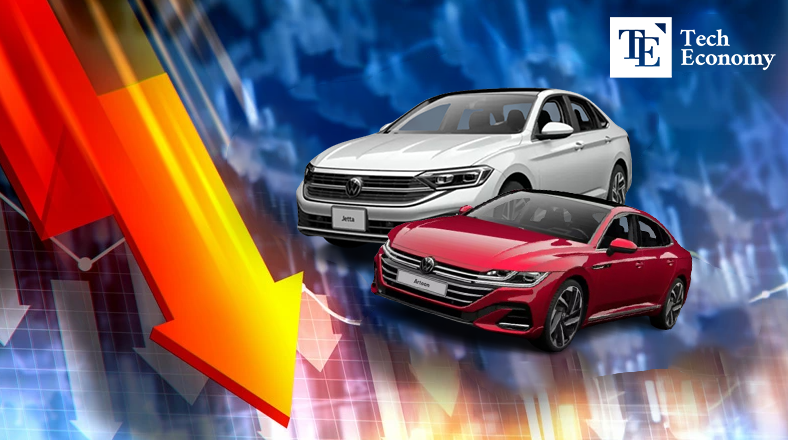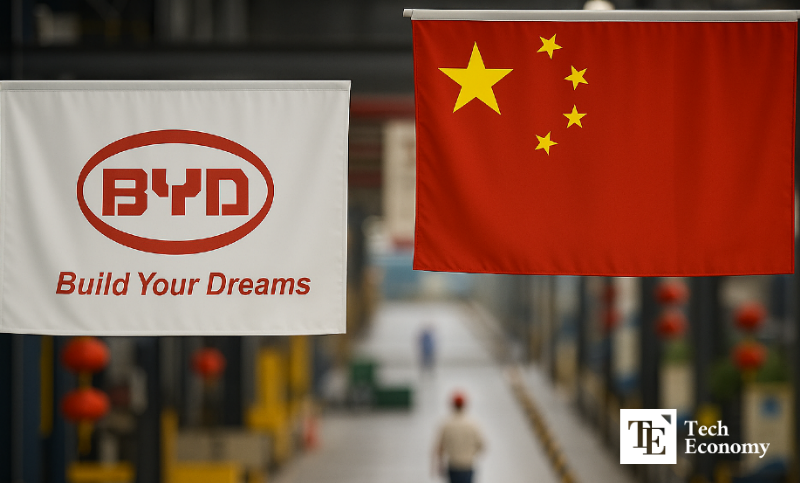“Volkswagen Could Become a Defense Contractor”: German Auto Industry, Having Shed 50,000 Jobs, Turns to Military Production for Survival
Input
Modified
Chinese Automakers’ Rise Deepens Crisis High Energy Costs from Nuclear Phase-Out and War Defense Industry Thrives Amid Europe’s Rearmament

Germany’s automotive sector, long the backbone of its economy, has shed more than 50,000 jobs in the past year. A confluence of declining market share in China and surging electricity costs has forced the industry into retrenchment. As pressures mount, German automakers are increasingly eyeing defense production as a potential lifeline.
Revenue Declines and Job Cuts
According to CNBC on the 27th (local time), global accounting and consulting firm Ernst & Young (EY) reported that between July 2023 and June 2024, German manufacturing shed 114,000 jobs. Of these, 51,500—nearly half—were borne by the automotive industry, equivalent to around 7% of its total workforce.
Compared with pre-pandemic 2019, the auto sector has lost a total of 112,000 jobs. EY noted, “No other industry segment has experienced such a sharp contraction in employment.” Analysts attribute the cuts to a combination of deteriorating profitability, overcapacity, and overseas market weakness.
Profitability has been hit particularly hard. In the second quarter of this year, German automakers’ revenues fell 1.6% year-on-year. Although smaller than the 2.1% contraction in overall German industry, the erosion is significant given the sector’s traditional role as a stable employment base. Even Volkswagen, a symbol of German industrial resilience, reported a steep earnings decline in Q2, prompting a downward revision of its full-year guidance.

Chinese Ascendancy and Soaring Energy Costs
The single greatest drag on German automakers has been the meteoric rise of Chinese competitors. Long mired in head-to-head battles over price and innovation, German OEMs are now increasingly seen as lagging. Chinese EV manufacturers, led by BYD, are outstripping German rivals in both affordability and technological dynamism, rapidly eroding their market share.
Once heavily reliant on China—Volkswagen derived 40% of its 2022 global sales from the country, up from 31% a decade earlier—Germany’s automotive titans now find themselves sidelined. In China’s top 10 best-selling EV models, not a single German brand appears. BYD, founded just two decades ago as a battery maker, has leapfrogged Volkswagen as China’s best-selling car brand since 2023. Other Chinese challengers such as NIO and Xpeng further compound the threat.
Exacerbating the crisis are soaring energy prices. Germany’s two-decade nuclear phase-out, combined with the disruption of Russian oil and gas supplies following the war in Ukraine, has left the country with diminished generation capacity and elevated industrial power costs. According to the International Energy Agency (IEA), German industrial electricity prices surged from $173.4 per MWh in 2020 to $220.1 in 2024—a 30% increase. German industrial power rates now stand more than 60% above the OECD average.
“Volkswagen Could Become a Defense Contractor”
With pressure mounting, German automakers are actively exploring defense manufacturing as an alternative growth avenue. Volkswagen has left open the prospect of collaboration with defense group Rheinmetall. Rheinmetall CEO Armin Papperger recently remarked that Volkswagen’s Osnabrück plant could be suitable for producing defense equipment, hinting at a potential conversion of civilian facilities for military use. Reuters has reported that Volkswagen is weighing various options for utilizing the site.
Daimler Truck has already entered the defense market, developing and producing military-grade commercial vehicles under its Mercedes-Benz Special Trucks division. It has expanded product lines and service networks to meet rising global demand and is pursuing opportunities in North America and India while exploring eco-friendly military vehicle concepts.
Porsche SE has announced plans to maintain investments in automotive and industrial technology while expanding into defense. According to the Financial Times, Porsche intends to allocate up to $2.2 billion to startups in satellite-based surveillance, cybersecurity, and military logistics, and is preparing a “Defense Day” event to attract investors and partners.
The logic behind the pivot is clear: while future mobility demands enormous capital investment with modest returns, defense offers steady, government-backed demand grounded in existing technological capabilities. Defense procurement is less sensitive to economic cycles, and Europe’s post-Ukraine rearmament drive ensures expanding budgets.
Recent earnings underscore the urgency. Volkswagen Group’s operating profit in the first half of this year fell 33% year-on-year, with margins also shrinking. Daimler Truck reported a 6% revenue drop in Q2 2025 and cut its pre-tax profit outlook by roughly 23%. Rising tariff exposure further clouds profitability. An industry expert commented, “Amid the strain of transitioning to future mobility, weakening China sales, and growing tariff risks, defense production represents a pragmatic survival strategy for German automakers. Whether the defense pivot becomes a new pillar of German manufacturing remains to be seen.”






















Comment